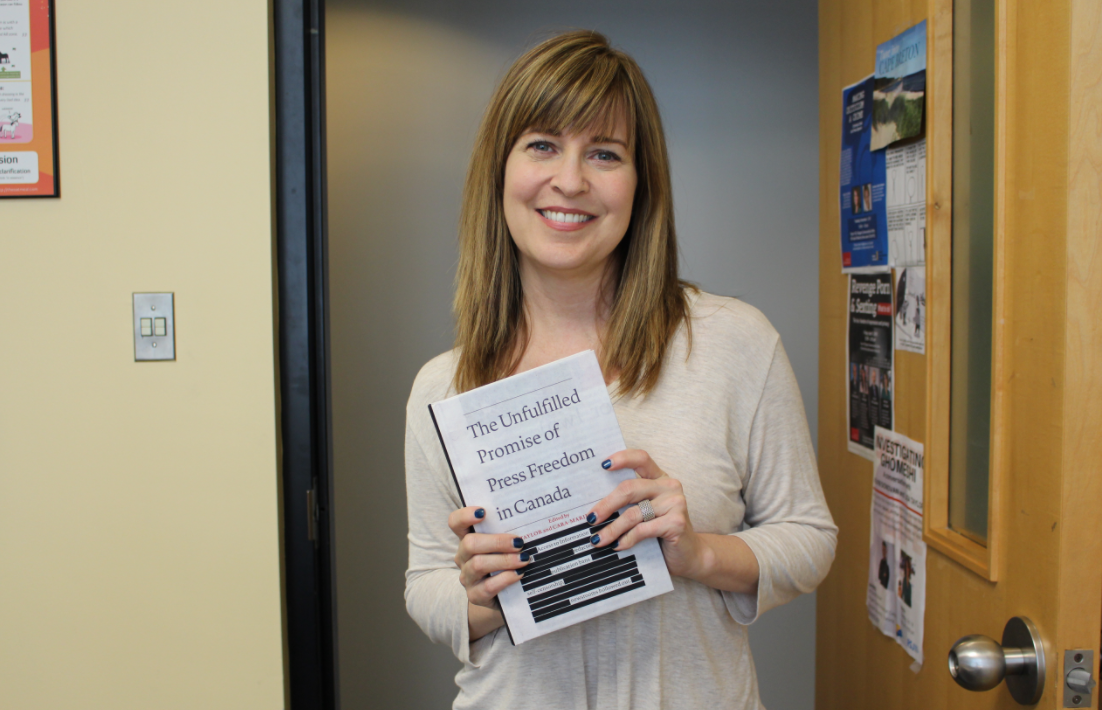Threats to press freedom are actually threats to the public’s right to know, says the co-editor of a new book.
By Jasmine Bala for the Ryerson Journalism Research Centre
Threats to press freedom are actually threats to the public’s right to know, says the co-editor of a new book that examines efforts to undermine Canadian journalists’ abilities to do their jobs.
Lisa Taylor, a lawyer, award-winning journalist and assistant professor at the Ryerson School of Journalism (RSJ), said that the discourse surrounding press freedom in recent years is worrisome because it overlooks the real cost of restrictions on journalistic work.
“Journalists don’t seek access to information so that they can just talk to other journalists about it,” Taylor said. “The end game is in sharing it with the public, and I think somewhere along the line we’ve lost sight of the idea that all the media are is a surrogate for the public.
“The public can’t drop everything and go to court for a day. The public can’t make it their job to spend weeks tracking down information and accessing it through Freedom of Information (FOI) requests. Journalists don’t do it to benefit journalists, they do it to benefit the world at large. Press freedom is not really a freedom for the press, it’s a freedom for the people who receive information from the press.”
The Unfulfilled Promise of Press Freedom in Canada, edited by Taylor and Cara-Marie O’Hagan, the former director of the Ryerson Law Research Centre, is a collection of essays by academics, journalists, lawyers and others. The edited volume, Taylor writes in an opening note, explores how press freedom has been constrained by “governmental interference, threats of libel suits and financial constraints.”
Taylor said the chapters examine press freedom “from many different angles,” an approach that makes it different than other books on the topic.
Continue reading this story on the Ryerson Jounalism Research Centre website.

